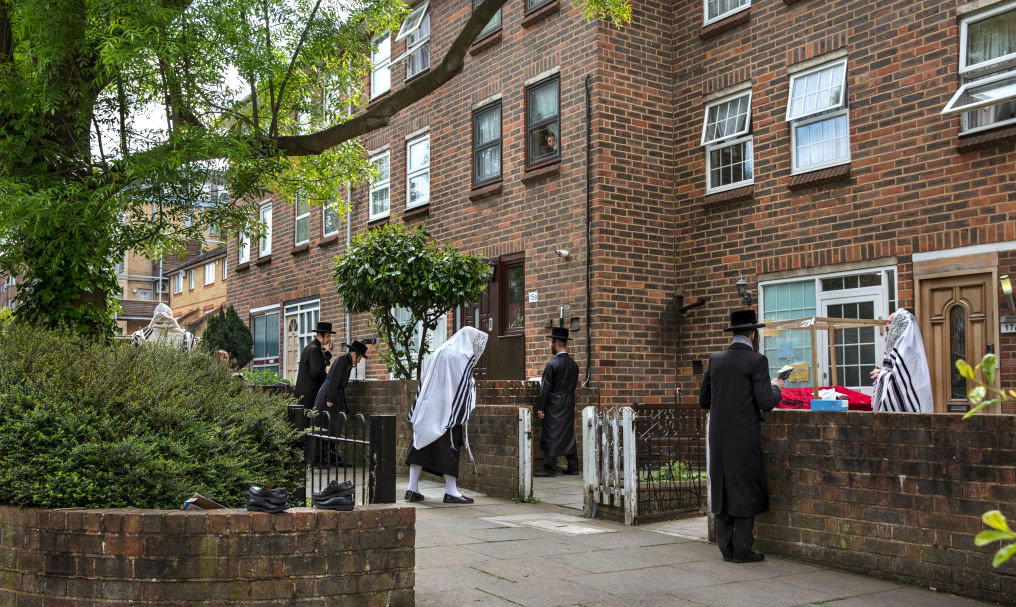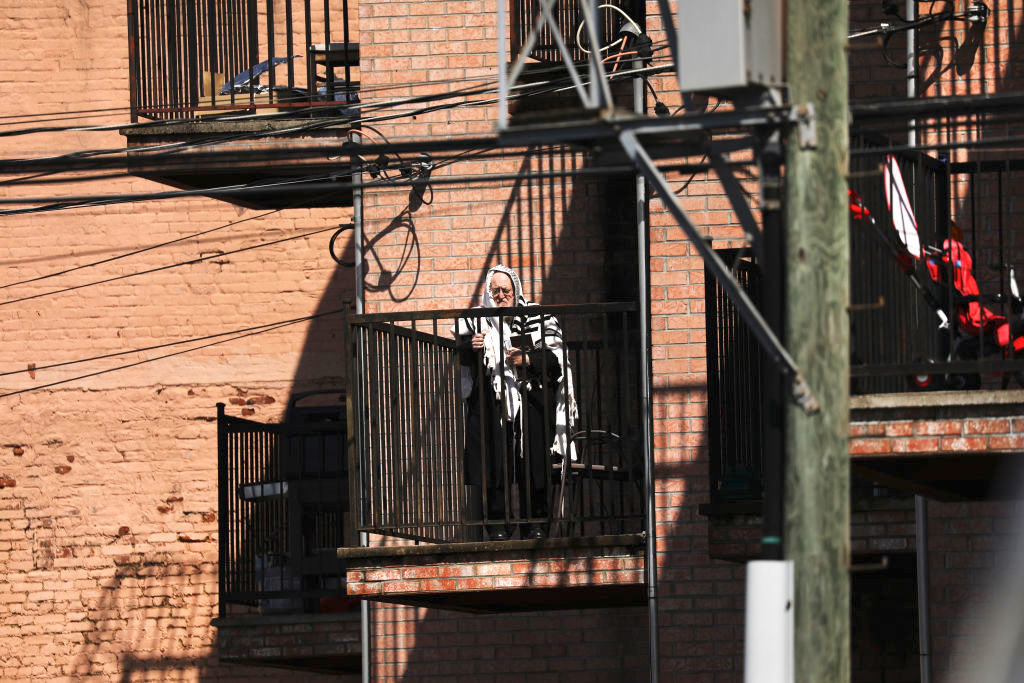‘Rogue minyans’ divide ranks of Orthodox rabbis
When the coronavirus pandemic first descended on the United States in March, the Orthodox rabbis of Dallas shuttered their synagogues together in a remarkable show of unity.
In April, as the governor of Texas began reopening the state, the rabbis banded together again, telling their congregants that they all would keep their synagogues closed.
But now, as the nation’s lockdown enters its third month, their compact has frayed. This week, the rabbis announced that going forward, each synagogue would decide on its own when to resume in-person services.
“The Orthodox Rabbinate of Dallas have collectively decided that each shul will open at a time and in a way that is best suited for its physical plant and congregation,” the rabbis wrote.
“Please note that whenever your shul opens and in which form, one thing will be common to all shuls — the reopening will be gradual, methodical and, in the initial stages it will, sadly, need to be quite different from when we all prayed together.”
The letter offered the latest evidence for an emerging reality: Two months after abruptly ceasing all communal prayer, Orthodox communities across the United States are increasingly divided over when and how to resume this centerpiece of Jewish life.
In Dallas, community leaders are essentially agreeing to disagree about whether it is safe to come back to synagogue. But in other places — including New York’s suburban Long Island, Florida and Ohio — rabbis are openly sparring over whether to permit outdoor minyans, or small-scale prayer services held on porches and lawns.
That Orthodox communities are eager to get back to prayer services is not surprising. Non-Orthodox synagogues have added online Shabbat services and begun allowing prayer quorums to form over Zoom, enabling those who’ve lost a loved one to recite the Mourner’s Kaddish. But Orthodox practice does not allow technology on Shabbat or virtual minyans, precluding observant Jews from fulfilling the religious obligations that form the rhythms of daily Orthodox life.
Rabbis ruled that staying home to prevent the spread of disease was a higher obligation than praying communally during the pandemic’s early days, when it ravaged Orthodox communities in New York and New Jersey. But as time has worn on and other local communities have not experienced the same crisis, rabbis have faced pressure from their constituents to allow minyans to resume with added safeguards.
Last week, major Orthodox groups issued two sets of guidance that urged a slow, careful return to in-person prayer services. One set, from the Orthodox Union and Rabbincal Council of America, took a firmer stand than the other, from the Agudath Israel of America, against resuming outdoor services immediately. But both groups left final decisions about reopening to local rabbis and health officials.
The result has been tension within Orthodox communities, with advocates of devising a pathway back to communal prayer clashing with those who say it’s too soon, and too risky, to reconvene.
In Cleveland, an Orthodox rabbinical association announced that “block captains” could begin organizing outdoor minyans that conformed to distancing guidelines. It faced swift opposition from other Orthodox rabbis in the area.
“I feel duty-bound to inform people that I am not supportive of the letter,” one of the rabbis wrote, according to the Cleveland Jewish News.
Leaders of a synagogue in Deerfield Beach, Florida, sent a letter to congregants sharply criticizing those who gathered for services in what they deemed “rogue minyanim.”
“This level of raw chutzpah and dangerous Sofek Pikuach Nefashos cannot be tolerated,” said the synagogue leaders, using a Hebrew phrase meaning possible danger to human life.
The letter warned that participants in these minyans would be denied honors at the synagogue whenever it reopened.
And the Rabbinical Council of Bergen County released a letter saying outdoor minyans “absolutely cannot take place now.” The group was the first to issue unified rules during the pandemic, shutting down all synagogues under its purview on March 12.

 48.0°,
Overcast
48.0°,
Overcast 







